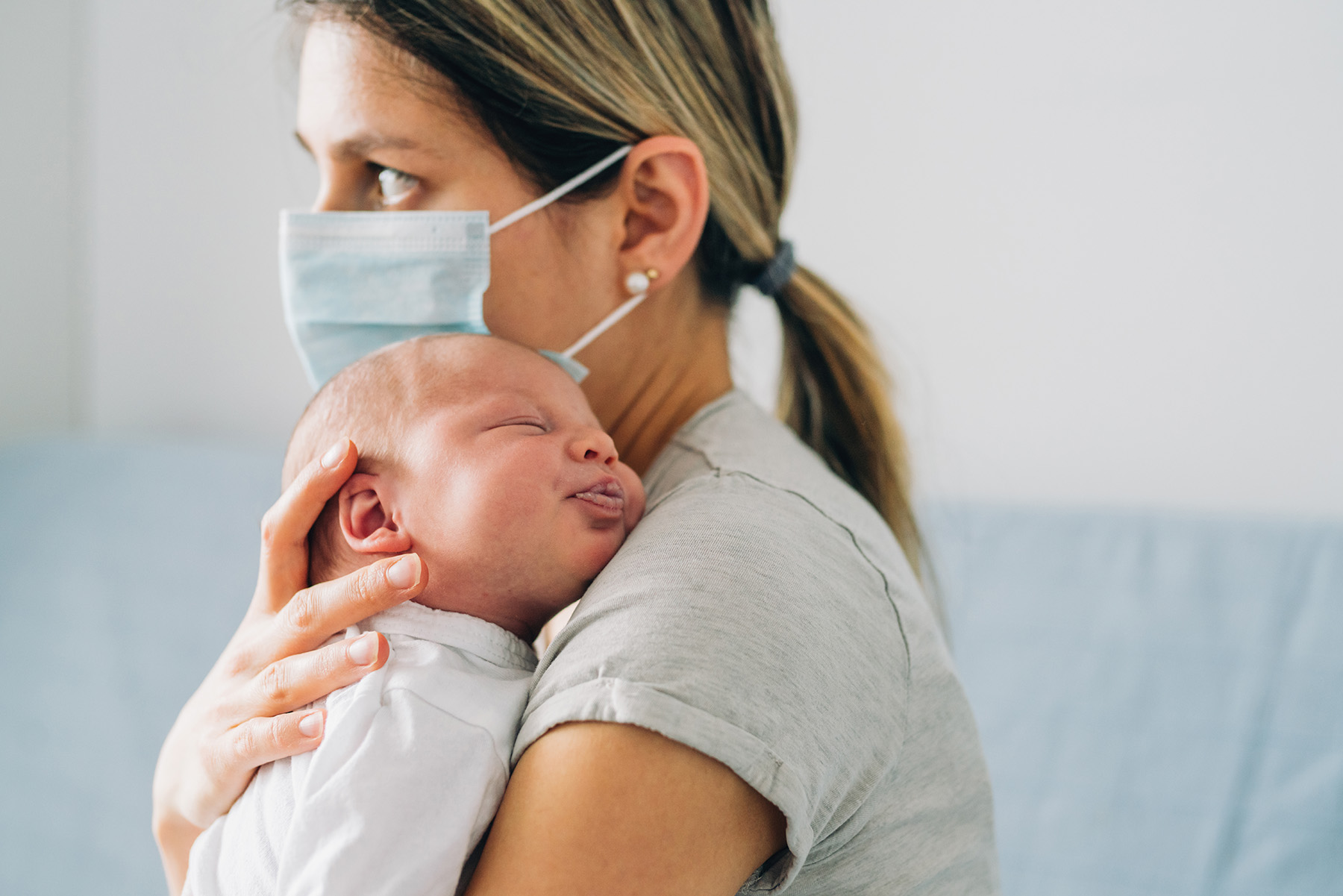Postpartum Depression in a Pandemic

Postpartum depression and anxiety are unfortunately common among women after childbirth, and the ongoing pandemic has only increased these concerns.
Most parents or people who are thinking about becoming parents are aware of the risks related to postpartum depression. This condition is more severe than the typical “baby blues” and leads to prolonged sadness, loss of pleasure or interest, anxiety, fatigue, or other symptoms that is characteristic of depression or anxiety.
What most people don’t realize, however, is just how prevalent postpartum depression truly is. According to the Anxiety and Depression Association of America (ADAA), up to 15% of women will experience postpartum depression or anxiety. And anywhere from 30 to 70% of those women will experience the symptoms for a year or longer.
When it comes to anxiety after childbirth, the numbers may be higher, says Vanessa Padilla, M.D., a clinical psychiatrist at the University of Miami Health System.
“The prevalence of postpartum anxiety can widely vary depending on how it is screened, but it has been described in a range of 5 to 40%. In my experience, mothers who have a history of depressive or anxiety disorders are the most vulnerable ones to develop or experience a recurrence of their symptoms after delivery, especially if treatment has been stopped during the pregnancy.”
Postpartum depression cases are increasing during COVID-19
Though the research is fairly new and still emerging, initial studies indicate that this trend is growing worse during the ongoing coronavirus pandemic. One study published recently in Frontiers in Global Women’s Health noted substantial increases in both anxiety and depression among pregnant women and new mothers. The study recruited 520 pregnant women and 380 women in their first year of motherhood to take an online survey. The results indicated that signs of depression rose from 15% before the pandemic to more than 40%. Likewise, signs of moderate-to-high anxiety increased from 29% pre-pandemic to 72% at the time of the survey.
Dr. Padilla has seen a similar impact on her clients, as well. “New mothers raise concerns about when to allow visits at home, how their support system, such as grandparents, may be unavailable due to risk of exposure or how to breastfeed if they get infected,” she says.
If a pregnant woman gets diagnosed with COVID-19, it adds to the concerns of how this may affect her health and the health of the fetus.
Dr. Vanessa Padilla
Initial research shows the pandemic is already impacting mental health. It’s still early, Dr. Padilla says, but, “reports indicate that COVID-19 survivors may experience increased rates of anxiety, depression, and insomnia. In the case of postpartum women, when adjusting to a new baby, the postpartum time itself may result in sleep cycle disruption, which may worsen depressive or anxiety symptoms. During this critical time, there is a strong need to advocate for the assessment and treatment of maternal mental health.”
Recognize the symptoms of postpartum depression
If you or a loved one may be experiencing postpartum depression, seek help. Symptoms range widely:
- fatigue
- withdrawal
- extreme sadness
- mood swings
- loss of emotional control
- anxiety
- racing thoughts
Tips for a healthy recovery
Take care of yourself. After a child is born, mothers need plenty of rest, good nutrition, regular exercise, and time to relax to maintain their mental health. This is especially true for women with postpartum mental health issues. Talk to spouses, partners, or loved ones as much as possible.
Do not self-medicate. Dr. Padilla notes that relying on drugs and alcohol to ease anxiety and depression can be a slippery slope. Focus on healthy habits and get professional help if needed. Only a doctor can determine the need for antidepressants.
Turn to the experts. If you notice yourself or a loved one struggling with the symptoms of postpartum depression, professional help is available. Start with a primary care provider who can refer you to a psychiatrist or therapist. Postpartum support groups can also provide mental health benefits. All of these options are available through digital platforms, so help is just a video call away during these trying times.
Get emergency help if needed. Women coping with severe depression or suicidal thoughts should call the National Suicide Prevention Lifeline at 1-800-273-8255.
Wyatt Myers is a contributing writer for UMiami Health News.
Tags: female health, mental health, mother, postpartum depression, Vanessa Padilla
